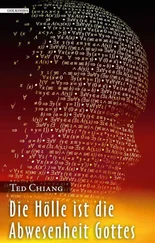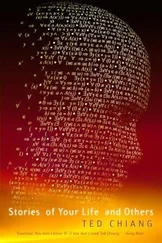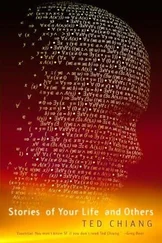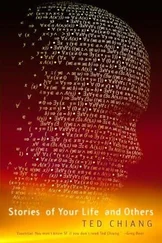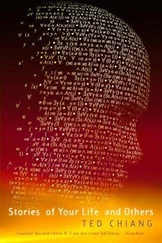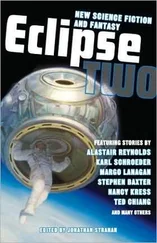The original legend is about the consequences of defying God. For me, however, the tale conjured up images of a fantastic city in the sky, reminiscent of Magritte’s Castle in the Pyrenees . I was captivated by the audacity of such a vision and started wondering what life in such a city would be like.
Tom Disch called this story ‘Babylonian science fiction.’ I hadn’t thought about it that way when I was writing it – the Babylonians certainly knew enough physics and astronomy to recognize this story as fanciful – but I understood what he meant. The characters may be religious, but they rely on engineering rather than prayer. No deity makes an appearance in the story; everything that happens can be understood in purely mechanistic terms. It’s in that sense that – despite the obvious difference in cosmology – the universe in the story resembles our own.
Understand
This is the oldest story in this volume and might never have been published if it weren’t for Spider Robinson, one of my instructors at Clarion. This story had collected a bunch of rejection slips when I first sent it out, but Spider encouraged me to resubmit it after I had Clarion on my resume. I made some revisions and sent it out, and it got a much better response the second time around.
The initial germ for this story was an offhand remark made by a roommate of mine in college; he was reading Sartre’s Nausea at the time, whose protagonist finds only meaninglessness in everything he sees. But what would it be like, my roommate wondered, to find meaning and order in everything you saw? To me that suggested a kind of heightened perception, which in turn suggested superintelligence. I started thinking about the point at which quantitative improvements – better memory, faster pattern recognition – turn into a qualitative difference, a fundamentally different mode of cognition.
Something else I wondered about was the possibility of truly understanding how our minds work. Some people are certain that it’s impossible for us to understand our minds, offering analogies like ‘you can’t see your face with your own eyes.’ I never found that persuasive. It may turn out that we can’t, in fact, understand our minds (for certain values of ‘understand’ and ‘mind’), but it’ll take an argument much more persuasive than that to convince me.
Division by Zero
There’s a famous equation that looks like this:
e iπ + 1 = 0
When I first saw the derivation of this equation, my jaw dropped in amazement. Let me try to explain why.
One of the things we admire most in fiction is an ending that is surprising, yet inevitable. This is also what characterizes elegance in design: the invention that’s clever yet seems totally natural. Of course we know that they aren’t really inevitable; it’s human ingenuity that makes them seem that way, temporarily.
Now consider the equation mentioned above. It’s definitely surprising; you could work with the numbers e , π, and i for years, each in a dozen different contexts, without realizing they intersected in this particular way. Yet once you’ve seen the derivation, you feel that this equation really is inevitable, that this is the only way things could be. It’s a feeling of awe, as if you’ve come into contact with absolute truth.
A proof that mathematics is inconsistent, and that all its wondrous beauty was just an illusion, would, it seemed to me, be one of the worst things you could ever learn.
Story of Your Life
This story grew out of my interest in the variational principles of physics. I’ve found these principles fascinating ever since I first learned of them, but I didn’t know how to use them in a story until I saw a performance of Time Flies When You’re Alive , Paul Linke’s one-man show about his wife’s battle with breast cancer. It occurred to me then that I might be able to use variational principles to tell a story about a person’s response to the inevitable. A few years later, that notion combined with a friend’s remark about her newborn baby to form the nucleus of this story.
For those interested in physics, I should note that the story’s discussion of Fermat’s Principle of Least Time omits all mention of its quantum-mechanical underpinnings. The QM formulation is interesting in its own way, but I preferred the metaphoric possibilities of the classical version.
As for this story’s theme, probably the most concise summation of it that I’ve seen appears in Kurt Vonnegut’s introduction to the 25th anniversary edition of Slaughter-house-Five : ‘Stephen Hawking… found it tantalizing that we could not remember the future. But remembering the future is child’s play for me now. I know what will become of my helpless, trusting babies because they are grown-ups now. I know how my closest friends will end up because so many of them are retired or dead now… To Stephen Hawking and all others younger than myself I say, “Be patient. Your future will come to you and lie down at your feet like a dog who knows and loves you no matter what you are.” ’
Seventy-Two Letters
This story came about when I noticed a connection between two ideas I’d previously thought were unrelated. The first one was the golem.
In what’s probably the best known story of the golem, Rabbi Loew of Prague brings a clay statue to life to act as a defender of the Jews, protecting them from persecution. It turns out this story is a modern invention, dating back only to 1909. Stories in which the golem is used as a servant to perform chores – with varying degrees of success – originated in the 1500s, but they still aren’t the oldest references to the golem. In stories dating back to the second century, rabbis would animate golems not to accomplish anything practical, but rather to demonstrate mastery of the art of permutating letters; they sought to know God better by performing acts of creation.
The whole theme of the creative power of language has been discussed elsewhere, by people smarter than me. What I found particularly interesting about golems was the fact that they’re traditionally unable to speak. Since the golem is created through language, this limitation is also a limitation on reproduction. If a golem were able to use language, it would be capable of self-replication, rather like a Von Neumann machine.
The other idea I’d been thinking about was preformation, the theory that organisms exist fully formed in the germ cells of their parents. It’s easy for people now to dismiss it as ridiculous, but at the time, preformation made a lot of sense. It was an attempt to solve the problem of how living organisms are able to replicate themselves, which is the same problem that later inspired Von Neumann machines. When I recognized that, it seemed that I was interested in these two ideas for the same reason, and I knew I had to write about them.
The Evolution of Human Science
This short-short was written for the British science journal Nature . Throughout the year 2000, Nature ran a feature called ‘Futures’; each week a different writer provided a short fictional treatment of a scientific development occurring in the next millenium. Nature happens to be a distant corporate cousin of Tor Books, so the editor in charge of ‘Futures,’ Dr. Henry Gee, asked Patrick Nielsen Hayden to suggest some possible contributors. Patrick was kind enough to mention me.
Since the piece would appear in a scientific journal, making it about a scientific journal seemed like a natural choice. I started wondering about what such a journal might look like after the advent of superhuman intelligence. William Gibson once said, ‘The future is already here; it’s just not evenly distributed.’ Right now there are people in the world who, if they’re aware of the computer revolution at all, know of it only as something happening to other people, somewhere else. I expect that will remain true no matter what technological revolutions await us.
Читать дальше


